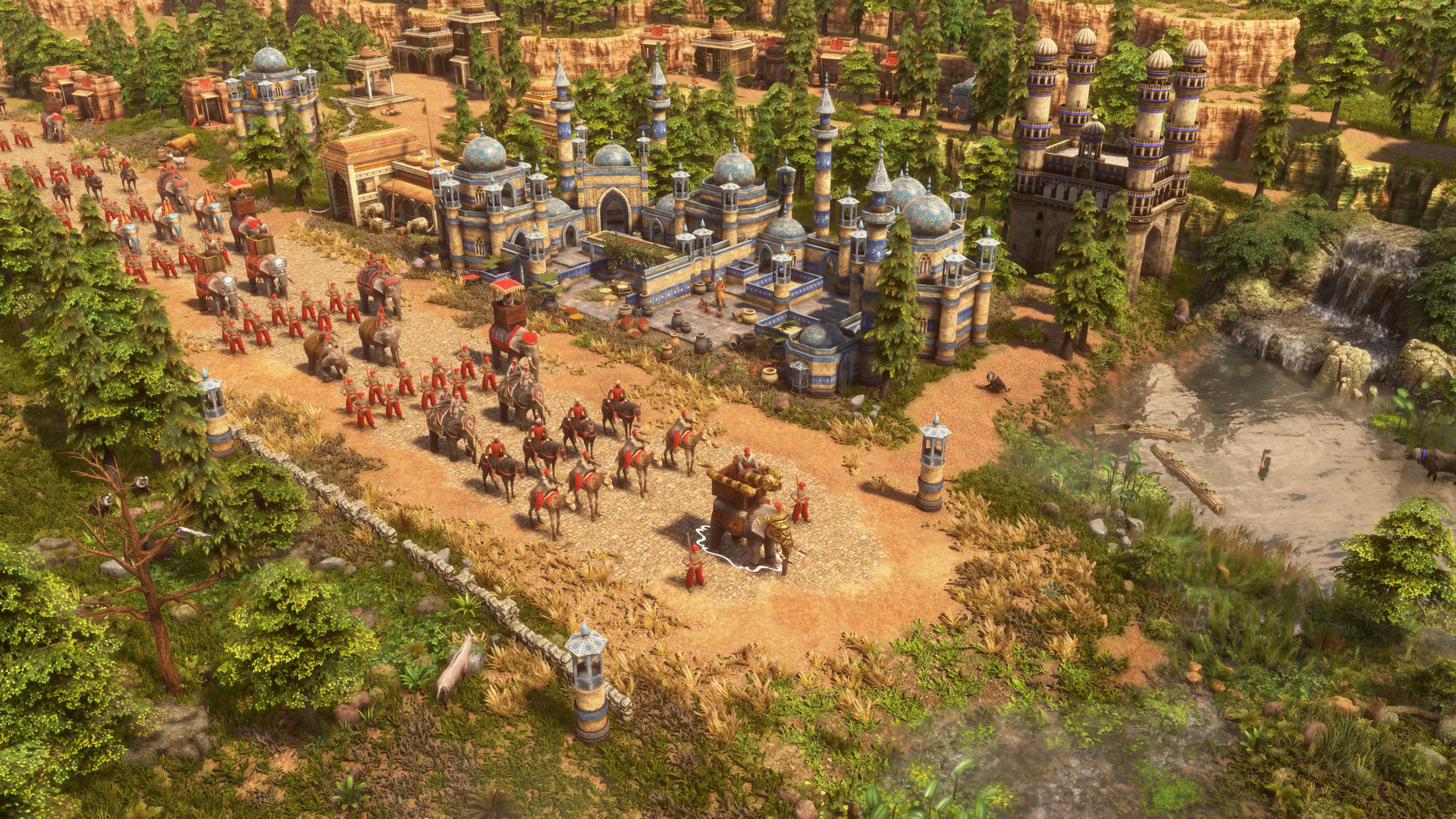
What is it? A remastered version of a real-time strategy game from 2005.
Expect to pay $20/£15, or Game Pass subscription
Developer Forgotten Empires
Publisher Xbox Game Studios
Reviewed on Intel i7-4790k, AMD Radeon 5700XT, 16GB RAM
Multiplayer? Yes, online
Link Official site
Age of Empires 3 was always a black sheep—the unloved mercenary of its series who’d never be accepted by the other troops no matter its achievements. It suffered by being the sequel to a genre-defining game that would turn out to be the best of a dying breed of real-time strategy. Then there was the fact that Age of Empires 2 was a masterclass in isometric pixel art—a lost aesthetic that, like a sturdy antique, shines beautifully with a bit of polish (as Fraser observed in his review). Age of Empires 3, on the other hand, was from an era of 3D graphics where everything in this genre looked kind of stiff and lumpy, but you didn’t notice because much of it was hidden amongst the big pixels and monitor scan-lines.
A remastered Age of Empires 3 is kind of akin to watching historical battle reenactments on a 4K screen only to find that they’re performed by creaky animatronic soldiers. The increased frame-rates and resolutions highlight the half-baked animations and seemingly unimproved textures of this 15-year-old game. There’s an updated physics engine, but the only time it felt tangible was when a cubic chunk from a collapsing building bounced off a neighbouring building like a weightless block of polystyrene.
So Age of Empires 3 isn’t much of a looker. But its strengths lie elsewhere, in the myriad little conveniences and quality-of-life refinements that may make it more appealing to series newcomers than its predecessor.
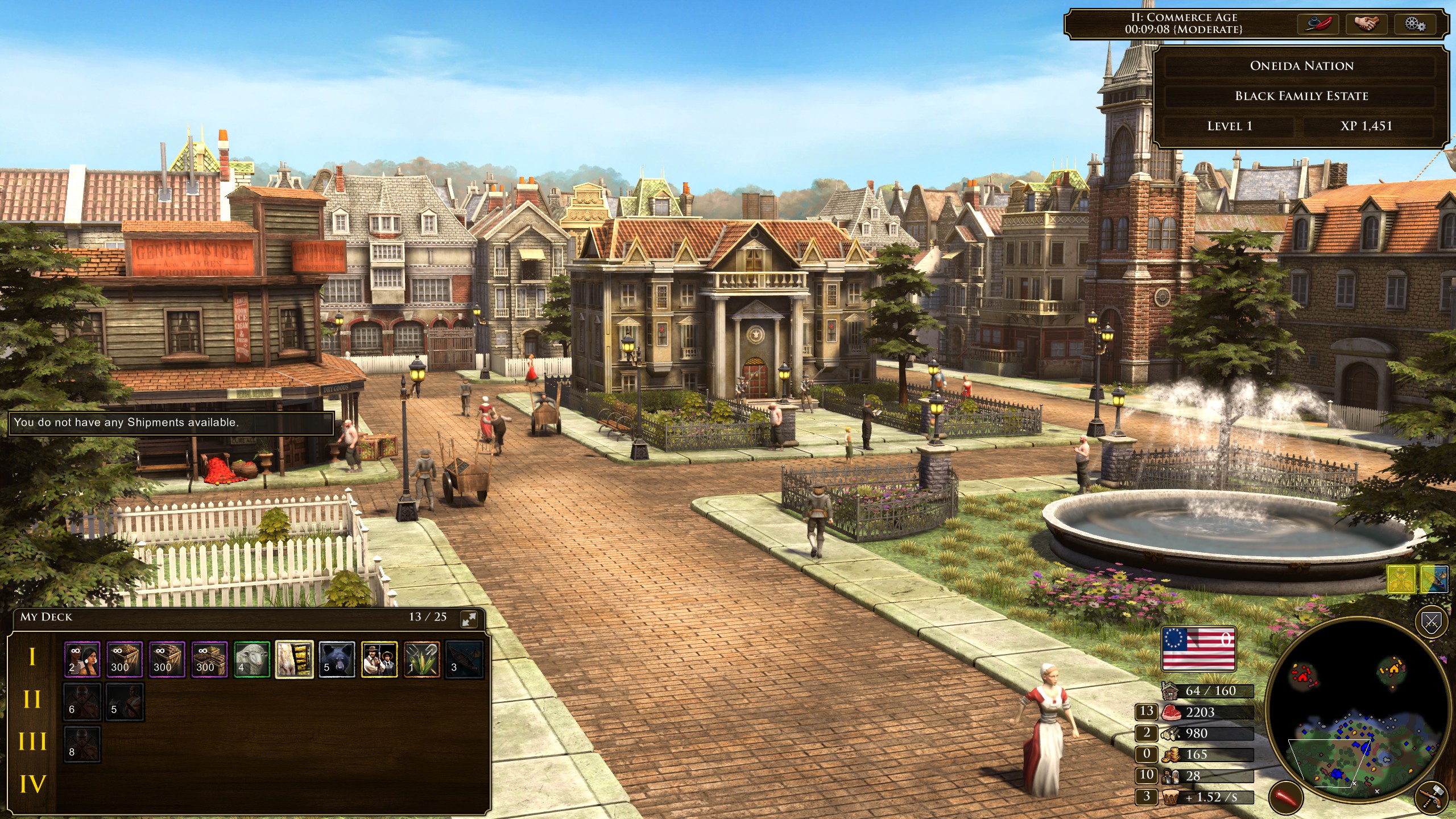
The game follows much the same freeform base-building flow as the rest of the series: plonk down a town centre anywhere you like on a map, build villagers, and scurry around extracting food, wood and coin from the land that you use to build armies, improve your technologies, and wipe out your enemies.
One of the most joyous things about Age of Empires has always been the faction variety and the tradition continues here. You have 16 civilisations to choose from, and each has a host of unique units and quirks that make them distinctive. India has Sacred Fields that heal and buff units, the British get free workers for building houses, while the Russians can’t shake their Soviet stereotype as a ruthless people-factory-cum-meat-grinder by producing infantry at an alarming rate.
There are two all-new civs in the definitive edition, both with some interesting bonuses; Sweden gets cheap mercenaries and charming wooden Torps that gather resources, while Inca can garrison military in many of its buildings and use priestesses to woo enemies over to your side.
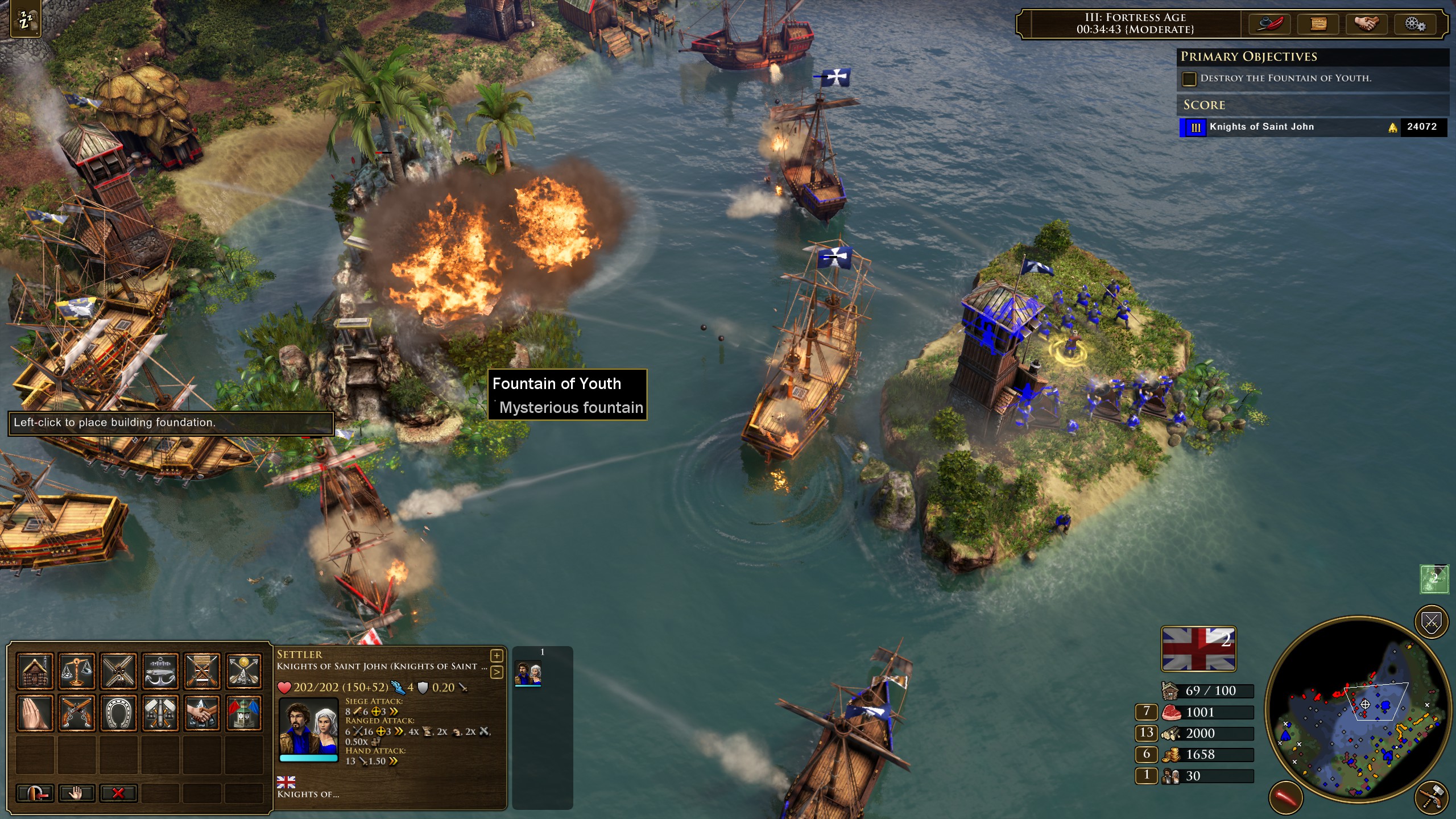
Age of Empires 3 requires cohesive strategy, fast clicking, and the mental motivation to learn a thousand hotkeys. It doesn’t suffer fools or the fumble-fingered, and even prologue missions can be gruelling without a refresher on the hotkeys for jumping to the town centre, queueing up villager production, and jumping between hero units. In this sense, even the campaign missions feel like warmups for online play rather than strong stories to immerse yourself in.
It may be demanding and intense, but Age of Empires 3 is also deceptively simple, and a whole lot less fiddly than its predecessor thanks to a mix of modernisations it made back in 2005 and now with the definitive edition.
It may be demanding and intense, but Age of Empires 3 is also deceptively simple.
Nostalgics can opt for a cleaner version of the original UI minus the excess of wooden veneer that boxed in the action in the 2005 version (I, for one, would like to have had the original UI in all its screen-hogging glory). For most, though, the ‘Definitive’ UI is probably the way to go, making those precious resource counters displayed large and clear at the top of your screen. Whatever your preference, the options are there, and you can resize the initially oversized UI too.
Further smoothing things out are various mechanical tweaks. You now only have three resources to worry about rather than the four of previous games, there’s a big clear button that automatically sends you to the next idle villager, and you no longer need special buildings to store resources, cutting down on menial micromanagement. There’s an enjoyable card system too, which lets you set up a deck between battles, then call in supplies from your Home City on a timer.
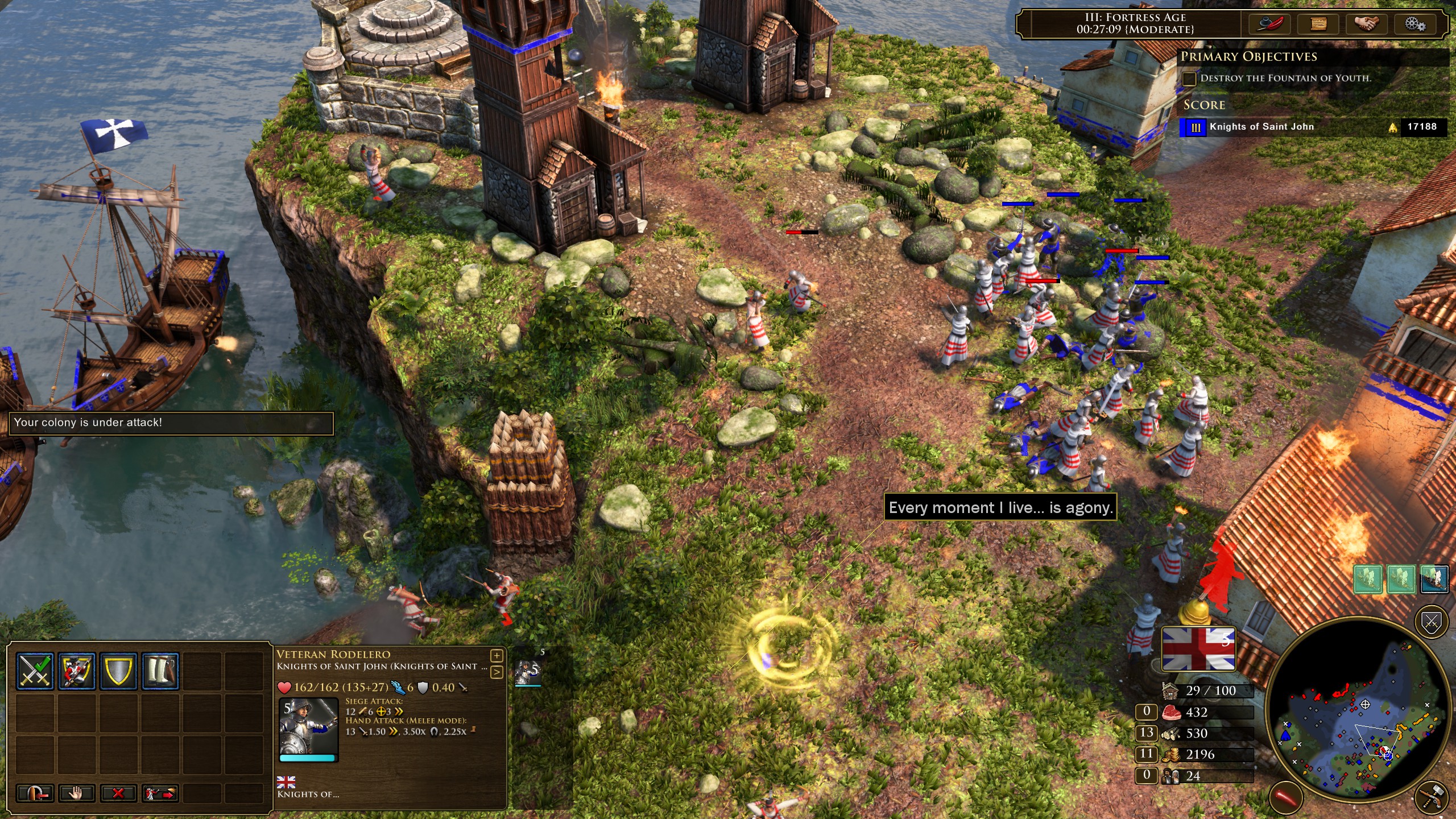
All this makes for a fast-flowing game that condenses centuries worth of military and technological progress into battles that last between 10 minutes and an hour. The fact that it squeezes five technological ages into just the colonial era means you don’t see the same dramatic evolution as you do across the eras in Age of Empires 2 (which stretches from the Dark Ages to the Colonial era), but it’s still a satisfying journey punctuated by flashy new units that reflect your progres.
The problems with Age of Empires 3 really start when you zoom in, seeing how messy and stilted things are up close. Combat neither looks nor feels great; try to execute a special move with a hero unit, and instead of shoulder-barging their way through to the front of the skirmish they’ll back out like a scrawny kid at a metal concert and go all the way around, by which time your target may well be dead or gone. Send your cavalry to death-or-glory Rohirrim charge an enemy line and they’ll stop just before impact, politely sword-swiping at foes who can turn to face you instantaneously without a turning animation.
This kind of stuff was understandable in 1999 in Age of Empires 2, but a bit iffy in 2005 when you already had games like Total War or Battle for Middle-Earth finding ways to make combat feel impactful. It’s obscene in 2020. For a game gloating about its updated physics engine, it’s strange that the physicality of its combat makes it seem like everyone’s wielding weapons and armour forged from monopole north-facing magnets.
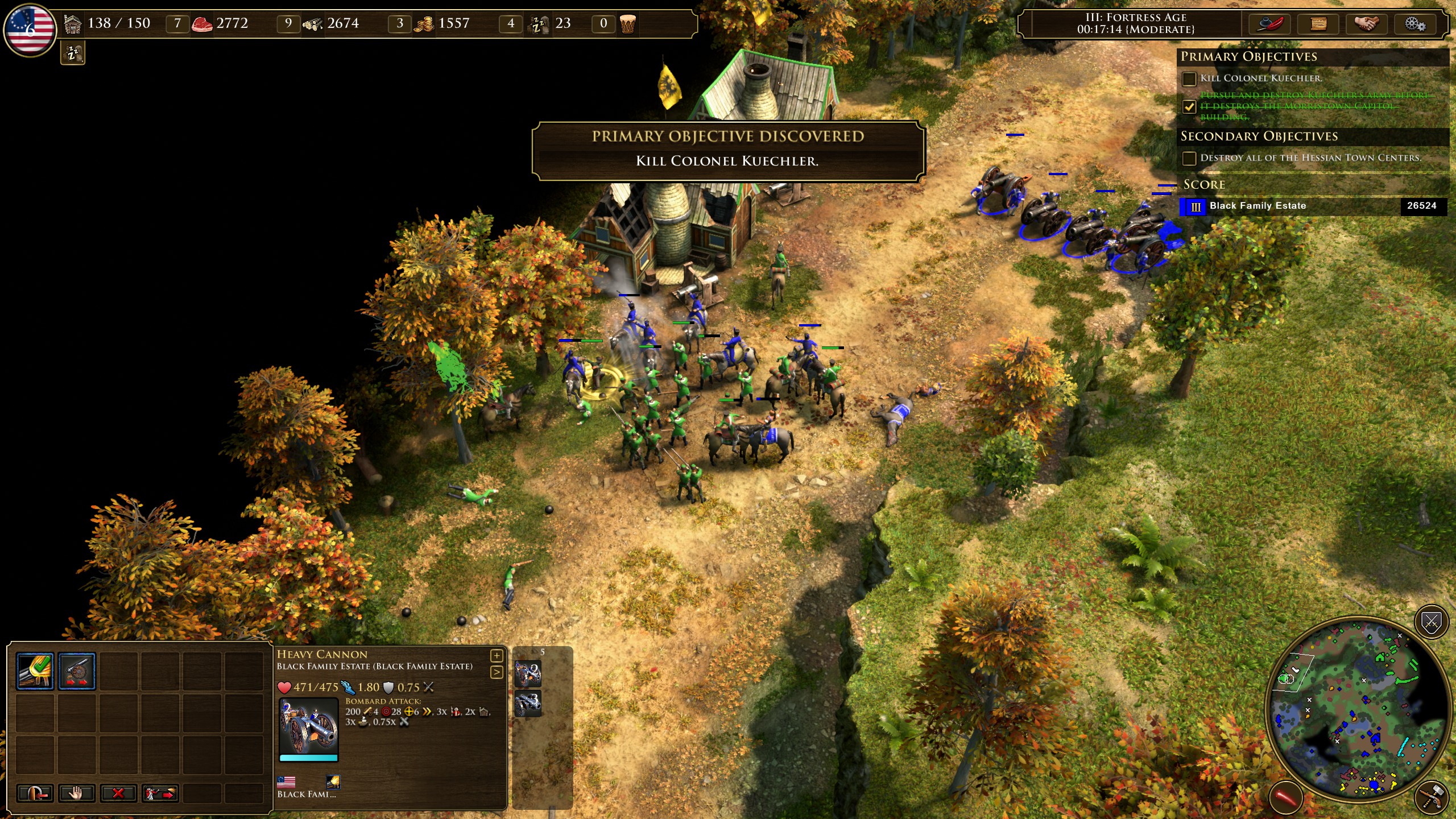
Age of Empires 3 remains a solid skirmish-style RTS that would fare better were it not released shortly after a game that’s so clearly Microsoft’s favourite strategy baby. Where Age of Empires 2 received several expansions over the last decade, including an all-new one for the Definitive Edition, there are no new campaigns here beyond the base game and its two expansions released at the time—that’s 27 campaigns versus eight (twelve if you charitably count separate acts as campaigns). Maybe back in 2005 the in-game cutscenes and more cinematic feel were enough to make up for the lesser amount of content, but they don’t offer much in the way of compelling storytelling or writing today (the cross-generational tale in the WarChiefs expansion being the best of a so-so bunch).
If you care little for single-player campaigns and are instead looking for a brisk RTS to play online with friends, then this is the path of least resistance into a genre stalwart, with plenty of quality-of-life touches that make it easy to acclimatise to (it’s pretty sensibly priced on Steam too, and available on Xbox Game Pass). If you’re an existing Age of Empires 3 fan, then this is the best way to play it going forward, even if the extent of the improvements reflects its status as the least loved entry in the series.
Although Age of Empires 3 requires less patience than Age of Empires 2, it’s also less rewarding over the long-term, struggling to match the elegance of a game that’s been updated and refined for 21 years.
Read our review policy
A modest remaster of a fun but flawed RTS that’s stuck in the ever-lengthening shadow of its predecessor.

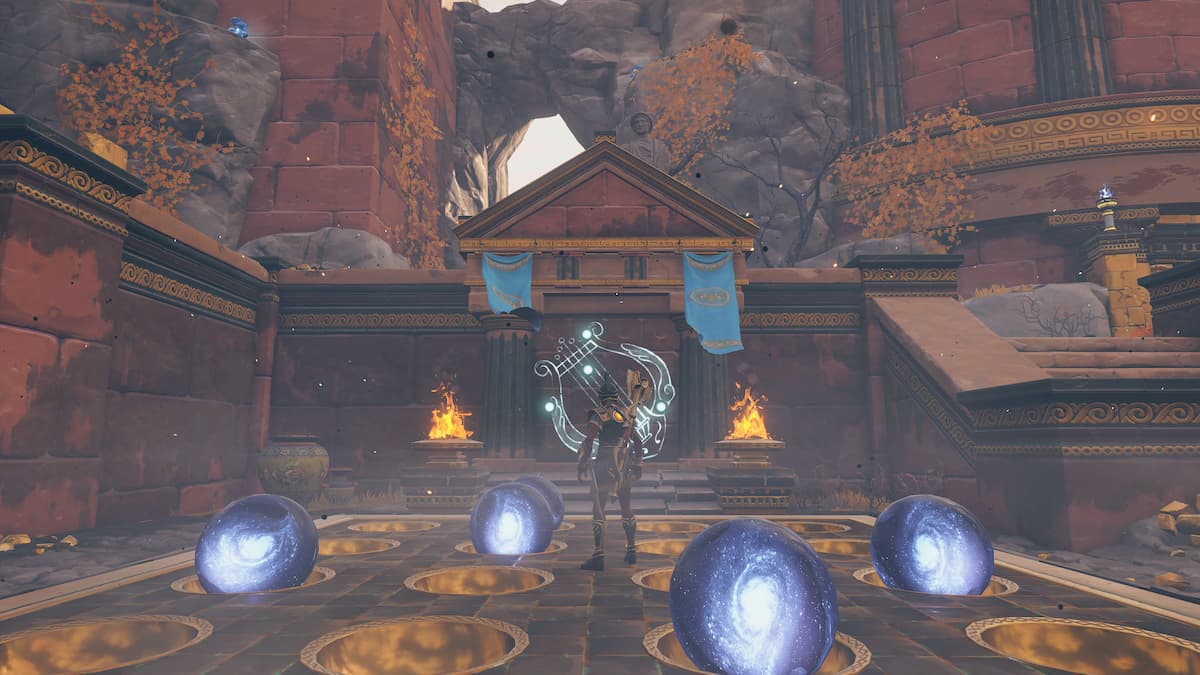
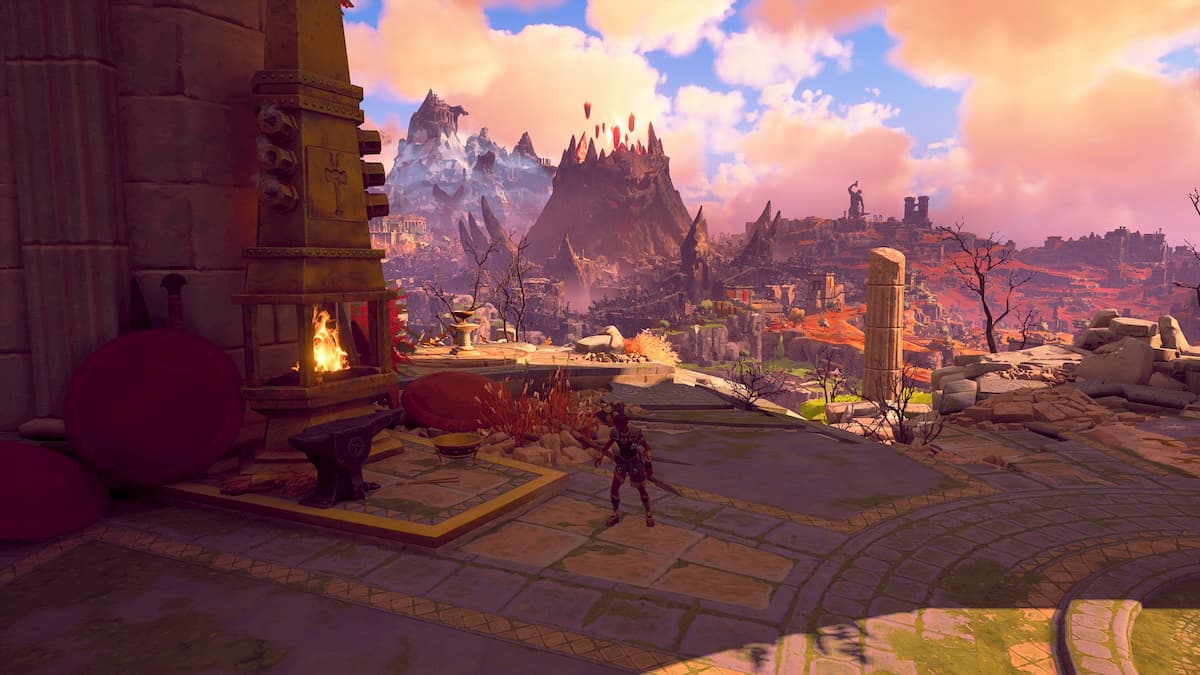

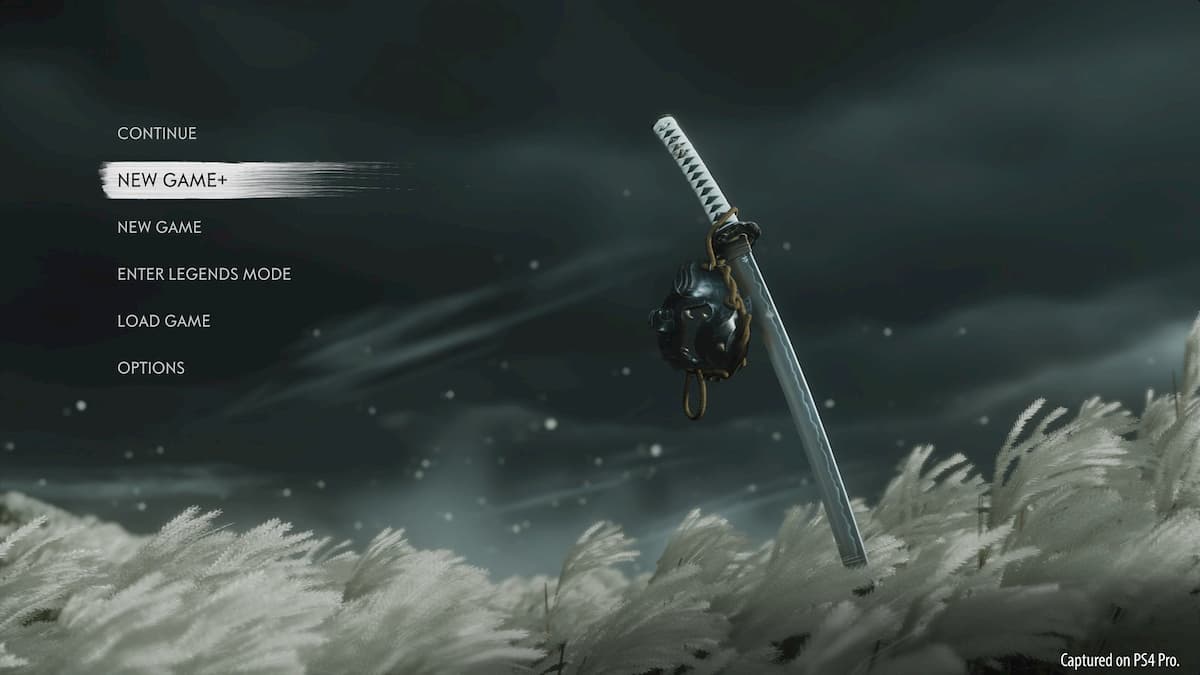


More Stories
Doom Eternal review
Review: The Last of Us Part II complicates the idea of right and wrong
Dirt 5 review